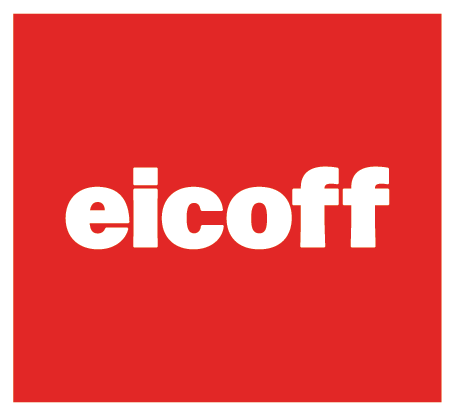Blame the Fyre Festival Fiasco on the Plague of Celebrity Influencers
Author: Dave Richardson. Source: Wired
It was like a nightmare crossover between Gossip Girl and Black Mirror. Socialites, models, and celebrities, promised extravagant beachside benders, flocked to the Bahamas only to find feral dogs, luggage gone AWOL, and accommodations resembling FEMA camps. Social media feeds exploded with tales of wealthy millennials stranded on an island with little food or water.
Initially, most of the blame was laid on former music sensation Ja Rule, the public face of Fyre Media, before culpability shifted toward his partner Billy McFarland, the 25-year-old Fyre Festival co-founder and CEO of Magnises, an on-demand luxury concierge service based out of Manhattan. (Full disclosure: I worked for Magnises as head of content from February to December of 2015.)
A disastrous music festival in the Bahamas, marketed to the 1 percent and helmed by a 25-year-old tech CEO and a ’90s rapper, both intoxicated from the questionable allure of venture capitalism, fits perfectly into 2017’s bizarre cultural landscape of oligarchy and celebrity worship. However, this narrative is exaggerated and misses the mark. Fyre Festival was an event promoted by multiple celebrities, “influencers,” and social media titans, most notably Kendall Jenner, Bella Hadid, and Emily Ratajkowski, without any proof of concept. These celebrities are not the victims: They are the perpetrators of irresponsible marketing that fails to consider the consumer.
Influencer marketing has long occupied a gray area of online advertising. In 2011 the rapper 50 Cent saw his investment in a penny-stock company called H & H Imports increase by $8.7 million when he promoted the stock on Twitter. Many companies, especially tech start-ups, use influencer marketing to establish credibility; the practice’s rise through social media occurred alongside the hospitality industry’s embrace of the “hosting model”, where celebrities pocket quick cash through walk-through appearances at nightclubs. Unlike standard partnerships between celebrities and companies, which typically require months of vetting and negotiations and years of brand representation, influencer marketing is immediate: The influencer promotes a product on a day agreed upon by the company, in the hopes of causing a surge in sales.
For the most part, these endorsements are harmless and can sometimes be quite funny (as when Kardashian hanger-on Scott Disick “accidentally” posted his advertising instructions in a since-deleted Instagram post promoting the British brand Boo Tea). However, when you have rappers doling out financial advice on Twitter about companies they’re personally invested in, and celebrities promoting music festivals in foreign countries, with some customers dropping tens of thousands of dollars, things get complicated. Should these influencers, who profit from the customers’ trust, have a responsibility to vet the products or services they’re promoting in order to keep that trust, or should their behavior go unchecked?
The Federal Trade Commission sides with option A.
Last March, the FTC filed a complaint against Lord & Taylor, complaining the retailer didn’t clarify that it had paid influencers and fashion juggernaut Nylon Magazine to promote its Design Lab clothing line. The social media campaign paid more than 50 fashion influencers between $1,000 and $4,000 to post an Instagram photo of themselves wearing a specific dress while mentioning Lord & Taylor and the hashtag #DesignLab in the photo caption. Nylon even posted a picture of the outfit on its Instagram feed. According to the Wall Street Journal, the Design Lab campaign reached 11.4 million users and resulted in 328,000 brand engagements. The dress sold out. And Lord & Taylor settled the case.
Later that year, the Connecticut-based nonprofit Truth in Advertising threatened to report the Kardashian-Jenner sisters to the FTC for “deceptive marketing” campaigns on social media, citing a Kylie Jenner Instagram post that promoted Fit Tea without indicating it was a paid advertisement. The Kardashians have since labeled some posts as sponsored, but they appear mostly undeterred by the $40,000 penalty for disobeying provisions outlined in the FTC Act. (Kendall Jenner promoted Fyre Festival without mentioning any financial ties).
Last month, after the consumer rights advocacy group Public Citizen filed a formal complaint referencing undisclosed endorsements by Kourtney Kardashian, Chrissy Teigen, Kris Jenner, and David and Victoria Beckham, the Federal Trade Commission sent letters to 90 celebrities and influencers advertising through social media. The specifics of each letter varied, but the FTC’s basic message was the same: Anyone using their fame to promote products was now required to disclose a “material connection” between the endorser and the marketer of a product. In the past, the FTC has created endorsement guides and published an statement to differentiate influencers’ advertising from truly independent news or product reviews.
In the case of Fyre Festival, only Emily Ratajkowski included “#ad” in her post to indicate that it was sponsored content. However, she shouldn’t be commended for what is legally considered standard practice. By lending their names to brands with no prior history—brands that are nothing more than young people throwing investor money towards hype— celebrities damage their own brands.
Influencer marketing is different from traditional advertising in that its perpetrators shape all facets of popular culture. Like corporations, influencers set trends in what we buy, what we wear, and even how we think. But as people continue to brand themselves on social media, celebrities have further turned themselves into marketing machines. With increased FTC crackdowns, and a newfound public distrust towards influencers following the Fyre Festival blowback, the influencer model is now in jeopardy. And maybe that’s not a bad thing.


